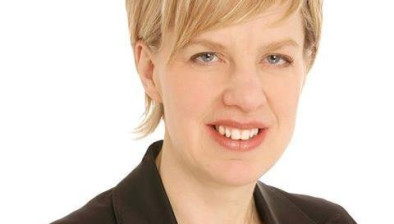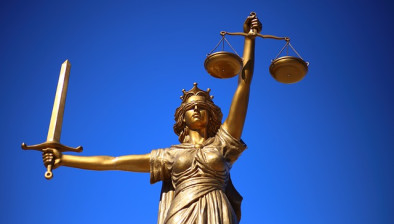Supreme Court: Appeal dismissed in case concerning disclosure of counselling records in sexual offence trial

The Supreme Court has delivered a judgment concerning the rights of victims in proceedings for sexual offences and the impact of the non-disclosure of a particular counselling record on the safety of the appellant’s conviction for sexual assault on a child.

About this case:
- Citation:[2025] IESC 16
- Judgment:
- Court:Supreme Court
- Judge:Mr Justice Maurice Collins
Delivering judgment for the Supreme Court, Mr Justice Maurice Collins noted: “While it may be to put the matter too far to suggest that the Oireachtas intended that such disclosure would be ordered only where there would be a real risk of an unfair trial in the absence of such disclosure, what is clear is that some compelling basis must be established for disclosure to be directed, involving a showing that the records are likely to be of real forensic value to the accused’s defence.”
Background
On 13 December 2021, AM was convicted by the Kerry Circuit Criminal Court on a single count of sexual assault of his grandniece ‘C’ contrary to s.2 of the Criminal Law (Rape) (Amendment) Act 1990 (as amended) following a three-day trial.
In advance of his trial, AM’s legal advisors came off record and his new legal team made a wide-ranging request for supplementary disclosure, including any reports, notes and memoranda arising from any attendances by C with a psychiatrist, psychologist, psychotherapist, counsellor, guidance counsellor or other medical professional or advisor.
Having been approached by gardaí, the Kerry Rape and Sexual Abuse Centre (KRSAC) disclosed that C had been the victim of a sexual offence but had not wanted to engage in counselling and that KRSAC had no counselling records relating to her.
C, who had by then attained her majority, was asked to give her consent to the further disclosure without first having had sight of the proposed disclosure. She signed two consents to the disclosure of records held by third-party agencies and of counselling records.
It emerged following the trial that C had in fact attended six counselling sessions with a Mr R in KRSAC and the relevant counselling records, which had been overlooked by KRSAC, were subsequently disclosed to the defence in January 2022.
The first session, the “17 September Record” recorded C as saying that the sexual abuse happened on more than one occasion, contrary to her evidence at trial that only a single occasion of assault had occurred.
AM was sentenced to imprisonment for two years and 9 months.
Court of Appeal
AM appealed to the Court of Appeal on grounds including that his conviction was unsafe and his trial unfair due to the newly-discovered evidence which might have materially influenced the outcome of his trial.
AM also issued a motion seeking to adduce new evidence, being the 17 September Record, on appeal.
At the hearing, the Court of Appeal made an order pursuant to s.3(3)(a) of the Criminal Procedure Act 1993 requiring a statement be taken from C in respect of the 17 September Record by the Garda Commissioner. A further statement was taken from C on 23 January 2023 in which she insisted that only a single incident of sexual assault occurred and that Mr R was in error.
Following a further hearing in May 2023, the Court of Appeal dismissed the appeal on the basis inter alia that it was not persuaded that the new evidence would not have caused the jury to have a reasonable doubt in light of the rest of the evidence and found that AM’s conviction was not unsafe.
In February 2024, AM was granted leave to appeal to the Supreme Court, which considered that the application of s.3(3)(a) of the 1993 Act in the context of an application to adduce fresh evidence on an appeal against conviction was an issue of general public importance.
The Supreme Court
Mr Justice Collins set out the essentiality of an effective disclosure regime in a fair criminal justice system, noting that an appropriate balance must be struck between the right to challenge the prosecution case by way of cross-examination and the rights of victims to privacy and dignity and that the “rights of victims, including the rights protected by Article 8 ECHR, are not to be swept away in the name of ensuring a fair trial”.
Turning to the disclosure of counselling records, Mr Justice Collins observed that same attract a high level of constitutional protection as they are “very likely to contain deeply personal and private information” and that the “discussion with a counsellor of intensely private events is clearly linked with deep-seated aspects of human psychology and personality”.
Having considered the legal landscape in other jurisdictions, the court focused on the origins of s.19A of the Criminal Evidence Act 1992 (as amended) which provides for the disclosure of counselling records in Ireland and noting that there was no practical guidance as to its operation or the circumstances in which disclosure should be directed.
Mr Justice Collins observed that it was important that the Oireachtas had intended s.19A to establish a higher threshold for disclosure of counselling records and that “some compelling basis must be established for disclosure to be directed, involving a showing that the records are likely to be of real forensic value to the accused’s defence”.
The court noted that the statutory right of a sexual offence victim not to have a counselling record disclosed without leave of a court is important and any waiver of that right pursuant to s.19A must be “fully informed” and that complainants “should not be asked to consent to the disclosure of counselling records to the defence without first being afforded an opportunity of reviewing the records and obtaining advice”.
In particular, the court considered that at minimum, the complainant should be informed of the records proposed for disclosure and should be aware of their contents before being asked to give consent, which should be the final stage of the disclosure process.
The court also expressed concern with regard the absence of any provision for independent legal advice for complainants as to the waiver of their rights not to have a counselling record disclosed, noting that many complainants will lack the resources necessary to obtain legal advice and will be forced to make a decision without being fully informed.
Mr Justice Collins also pointed out that while C had signed a consent form in relation to records held by KRSAC, C did not consent to disclosure of counselling records in the possession of KRSAC where it was then understood that she had not received counselling in KRSAC and therefore that there were no such records.
Accordingly, in circumstances where the KRSAC Records were counselling records within the meaning of s.19A, the judge considered that s.19A(2) thus prohibited disclosure of the content of the KRSAC Records without leave of the court in accordance with s.19A, subject only to the possibility of waiver pursuant to s.19A(17).
In circumstances where no leave of court was obtained and where no waiver was executed in respect of those records, the court found that the existence of those records could properly be disclosed to AM’s legal team but the contents of those records should not have been disclosed.
Mr Justice Collins emphasised that AM never had a legal right to have the 17 September Record disclosed to him without C’s knowledge and that the s.19A regime excludes “any defence entitlement to conduct a surprise cross-examination of complainants in sexual offence cases by reference to their counselling records”.
Finding that the Court of Appeal was thus entitled to make the order under s.3(3)(a) of the 1993 Act, the Supreme Court described as “entirely fanciful” AM’s argument that the Court of Appeal should have instead directed a re-trial at which C could have been cross-examined on the 17 September Record without advance notice of the existence or content of that document.
Noting that the essential enquiry was whether the evidence of Mr R and/or the 17 September Record might have had a material and important influence on the result of the case, could have reasonably affected the original verdict, or could have made a material difference in the context of the known facts of the case, Mr Justice Collins considered that the test is “not one of bare or merely theoretical possibility. A reasonable possibility of a material impact must be established. That inquiry necessitates close engagement with the entirety of the evidence as well as a careful assessment of the evidential and forensic value of the potential evidence of Mr R and/or the 17 September Record.”
Conclusion
Finding that the evidence would have been of limited evidential and forensic value and that there was no plausible basis for considering that it might have had any material impact on the jury’s assessment or undermined its view of the credibility and reliability of C, the Supreme Court dismissed the appeal.
Director of Public Prosecutions v. A.M. [2025] IESC 16









